Evaluation, Europe, International
Back to the event "Assessment, an essential step towards the European Higher Education and Research Area"
Published on
Within the framework of the French Presidency of the European Union (PFUE 2022), the Europe and International Department (DEI) of Hcéres brought together partners and stakeholders in European higher education and research, to discuss the role of evaluation in the European area in the context of contemporary challenges such as internationalization and digitalization of higher education and research.
This event, despite restricted conditions still in effect because of Covid limitations, brought together more than twenty European agencies and actors of higher education and research on site, at the Hcéres, while more than 300 participants followed the sessions online, from all over Europe and beyond.
Opening Session. Assessing higher education, research and innovation in the EU
Speakers
00.04 | Thierry Coulhon, President of the Hcéres
13.50 | Clément Beaune, Secretary of State in charge of European Affairs, Ministry of Europe and Foreign Affairs
16.37 | Michaela Šojdrová, Member of the European Parliament (European People’s Party), Rapporteur on the European Education Area
25.27 | Claire Giry, Director General for Research and Innovation (DGRI), Ministry for Higher Education, Research and Innovation
Session 1. The European HigherEd, research and innovation area on the international stage
Speakers
0.14 | Manuel Tunon de Lara, President of France Universités
4.37 | Anna Panagopoulou, Director of the European Research Area and Innovation, European Commission
10.40 | Maria Leptin, President of the ERC (European Research Council)
16.47 | Mobility in Europe, Manuel Tunon de Lara
18.50 | From an international standpoint, Chan Basaruddin, Vice President of INQAAHE (International Network for Quality Assurance Agencies in Higher Education)
23.00 | Questions from the and discussion
40.13 | Conclusions from morning talks (ouverture and first session), Thierry Coulhon, President of the Hcéres
Session 2, Round Table 1. Designing assessment. Feedback from the founders of the ESG
Speakers
2.10 | Douglas Blackstock, President of ENQA (European Association for Quality Assurance in Higher Education)
8.10 | Maria Kelo, Director of the Institutional Development of the European University Association (European University Association)
11.00 | John Edwards, Secretary General of EURASHE (European Association of Institutions in Higher Education)
14.50 | Maria Kelo, EUA
16.20 | Jakub Grodecki, Vice-president of ESU (European Student Union)
19.40 | Colin Tück, Director of EQAR (European Quality Assurance Register for Higher Education)
24.18 | Douglas Blackstock, ENQA
27.58 | Jakub Grodecki, ESU
31.18 | Maria Kelo, EUA
33.30 | Colin Tück, EQAR
36.10 | Douglas Blackstock, ENQA
39.15 | John Edwards, EURASHE
Session 2, Round Table 2. First steps and perspectives of European universities
Speakers
0.45 | Fabienne Péraldi-Leneuf, Vice President in charge of Europe at the University of Paris 1-Panthéon Sorbonne, Co-president Una Europa at Paris-1
5.30 | Pierre Koch, Director of the Université Technologique de Troyes, coordinator of the European University of Technology (EUt+)
9.20 | Sofia Costa D'Aguiar, Director General of EELISA (European Engineering Learning Innovation and Science Alliance)
15.30 | Discussions about European universities alliances and interdisciplinarity
19.44 | Jolanta Silka, Director of the AIC (Academic Information Centre, Latvia, member of the EUniQ project)
25.00 | Sandra Bezjak, Acting Director of ASHE (Agency for Science and Higher Education, Croatia)
32.00 | Discussions about delivering diplomas and accreditations
38.09 | Questions and discussions with the public
Discussion
54.09 | Vanessa Debiais-Sainton, Head of the Higher Education Unit, Directorate General for Education, Youth, Sport and Culture of the European Commission
Session 3, Round Table 1. Comparing how European agencies assess research in 4 different countries
Speakers
0.45 | Anders Södelholm, Director General of UKÄ (Swedish Higher Education Authority)
3.15 | Antonio Uricchio, President of ANVUR (Italian National Agency for the Evaluation of Universities and Research Institutes)
6.10 | Petr Noskievič, Board member at the NAB (National Accreditation Bureau for Higher Education, Czech Republic)
8.45 | Theodor Leiber, Scientific Advisor and higher education researcher at Evalag (German Agency for evaluation in the Länder of Baden-Württemberg)
14.20 | Discussion and comparison between the different evaluation systems and methods of the 4 countries
21.17 | What other evaluation criteria than publications can there be?
38.46 | Are the criteria used to evaluate research, publications and research policies adapted to the humanities?
43.00 | Evaluation quality: what is your definition?
45.10 | What are the common missions of European agencies?
47.00 | What are the common objectives of research evaluation?
50.30 | What are the financial implications of research evaluation?
Session 3, Round Table 2. What are the challenges for the future of research assessment in the EU?
Speakers
0.53 | The Dora Statement, Stephen Cury, Chair of DORA (San Francisco Declaration on Research Assessment)
4.24 | Dora’s principles, Kostas Gilnos, Head of the Open Science Unit, Directorate-General for Research and Innovation of the European Commission
8.56 | The need for reform, Lidia Borell-Damian, Secretary General of Science Europe
12.35 | Scientific integrity and Open science, Déborah Chery, Member of the working group on research integrity and assessment at Eurodoc (European Council of Doctoral Candidates and Junior Researchers)
16.40 | “We need to support young researchers”, Lidia Borell-Damian
18.30 | The evaluation of Open science, Déborah Chery
20.50 | Career advice and mentorship, Stephen Cury
24.10 | Publications, Kostas Gilnos
26.30 | Collective Community, Lidia Borell-Damian
30.40 | Integrity and communication, Lidi Borell-Damian
32.18 | Sharing data, Stephen Cury
38.11 | Science Europe proposals in 2020 about peers’ evaluation, Lidia Borell-Damian
41.44 | Principles in last year’s study, Kostas Gilnos
44.41 | Proposals and international agreements, Stephen Cury
50.20 | Questions from the public and discussion
Closing Session. Thierry Coulhon (Hcéres) and Jean-Pierre Bourguignon (IHÉS)
Speakers
0.04 | Thierry Coulhon, President of the Hcéres
3.02 | Jean-Pierre Bourguignon, Honorary professor at the Institut des Hautes Études Scientifiques (IHÉS)



